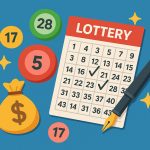Personal injury is unexpected and involves facing what you never planned for. In California, pursuing a personal injury lawsuit can help regain stability after an accident. But for many, the legal process is filled with uncertainty and confusion.
After filing a personal injury suit, you have several expectations running through your mind. What will happen after filing a lawsuit? How long might it take? Will your case face trial or settle before then? This article explains what to expect during a personal injury suit in California.
Discovery Phase
After a lawsuit for personal injury has been filed and the defendant served, the case moves to a discovery phase. “This discovery stage is where information is exchanged by the parties legally, and it exists to provide both sides with access to facts and evidence,” says Rusty Levin of Levin & Nalbandyan LLP. That access may affect the outcome of the case.
In this period, anticipate being questioned extensively regarding the accident and your injuries. This can occur through interrogations or depositions. Such questions are not informal discussions but legal testimonies that are entered into the official record.
For plaintiffs, the discovery process can feel like an invasion of their personal lives. It might require revisiting painful details or collecting documentation. However, it is also an opportunity to build a strong foundation for your case. Organized information gives your attorney a better chance at proving your claims.
Pre-Trial Motions and Possibility of Settlement
As discovery unfolds, the personal injury lawsuit is likely to proceed to trial. However, before anyone enters a courtroom, a series of legal steps known as pre-trial motions often precede the proceedings. In California personal injury cases, pre-trial motions can serve many purposes. For instance, one side may file a motion to exclude certain pieces of evidence, arguing that it is irrelevant. Another example is a motion for summary judgment. Here, a party argues that the facts are so clear and there is no need for a trial.
In some personal injury cases, a settlement is reached before the case proceeds to trial. This settlement can be informally negotiated or negotiated through mediation. Court-directed mediation is typical and might be free from uncertainty. However, settling means both sides agree to live with the solution.
Trial Proceedings
If no settlement is reached, the case proceeds to trial. Trials in California begin with jury selection, where both sides choose impartial jurors. After selection, both attorneys give opening statements. These statements are like roadmaps that help the jury understand the story behind the legal claims.
Next comes the presentation of evidence. The plaintiff’s attorney introduces documents and evidence to support the claim. The defense thereafter responds and challenges the narrative. Once the evidence has been presented, the judge instructs the jury on what to do based on legal stipulations. Thus, when the jury does make a decision, the verdict is read in court.
Post-trial Phase
After a verdict is reached, whether in your favor or not, the legal process does not end there. California law allows for both parties to challenge the court’s decision. This can be done by filing an appeal if the jury’s decision is deemed unfair.
An appeal does not mean starting the trial again. Instead, it is a review of the existing case to determine if legal errors were made. Usually, parties are not allowed to introduce new facts at the appeal stage. Instead, their arguments are expected to be based solely on points of law.
In California, an appeal must be filed within a time limit. This is usually 60 days from the date the verdict was made. However, if the trial resulted in a favorable judgment, the defendant pays what they owe. If the defendant is unwilling or unable to pay the damages, enforcement actions are carried out.
Conclusion
A personal injury lawsuit in California is not a quick process. Every phase has its role to play in deciding the outcome. However, having some idea of what to expect can help you handle the lawsuit with clarity, focus, and confidence.
Lynn Martelli is an editor at Readability. She received her MFA in Creative Writing from Antioch University and has worked as an editor for over 10 years. Lynn has edited a wide variety of books, including fiction, non-fiction, memoirs, and more. In her free time, Lynn enjoys reading, writing, and spending time with her family and friends.















